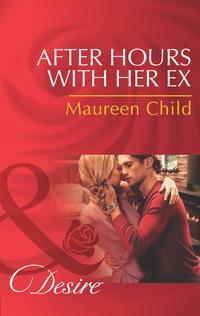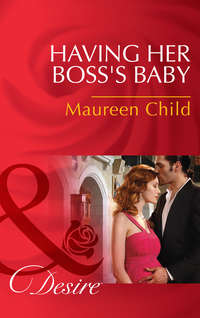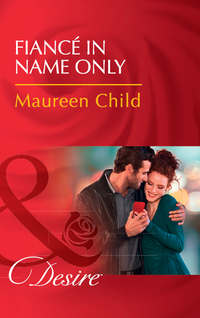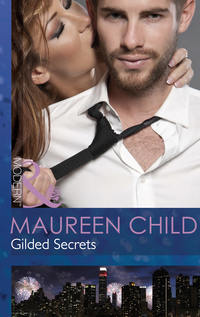
Полная версия
The Ashtons: Cole, Abigail and Megan: Entangled / A Rare Sensation / Society-Page Seduction
“Mercedes will have told you in general what we’re looking for,” he said as they reached the short hall at the bottom of the stairs. “We’re planning a series of ads in some of the upscale magazines and want a painterly look for them, nothing high-tech or mass-produced. We want them to convey the handson, personal quality of our wines.”
“She did.” Dixie had a slow smile, as if she liked to take her time and enjoy the process. “She also said you gave her a hard time about some aspects of the concept.”
“You can see who won. You’re here, even though it’s winter—not the best time for pictures of the vineyard.”
“But I’m not painting the vineyard. I’m painting the people.”
“She said something about that, but I don’t see how a picture of Eli fondling the grapes will sell wine.”
“She also said you don’t listen to her.” Dixie shook her head. Her hair swayed gently with the motion. “There are thousands of good wines out there. Yours may be the best, but how do you show that in an image?”
“Wine, grapes, the vines themselves—they’re strong images. A good artist could make them memorable.”
Her eyebrows lifted. “I could paint you a picture of grapes that would make teetotalers weep for what they’re missing. But everyone’s seen beautiful pictures of grapes. One more, no matter how well done, won’t identify what’s unique about Louret. Your ads shouldn’t sell wine. They should sell Louret.”
“I’m familiar with the idea of branding,” he said dryly. “But why pictures of people?” He’d heard Mercedes’ reasons—and they were good, or he wouldn’t have signed off on the idea. He wanted to hear Dixie’s take on it.
“Because with a boutique winery, it’s all about the people. You’ve established yourself with your pinot noir and merlot. Your cabernet sauvignon wins awards routinely. But the reds come from your grapes, your soil, unlike the new chardonnay. You want people to understand that they aren’t just buying great grapes when they buy a bottle of Louret wine. They’re buying Eli’s nose and a sip of your mother’s heritage.”
His eyebrows lifted. This didn’t sound like the passionately impractical rebel he’d once known. “Either you’ve gotten into wine or you’ve done some research.”
“Wine does come up when Mercedes and I talk, but yes, I’ve done research. I paint quickly, but I spend a good deal of time researching my subject before I start.”
“What happened to your art?” he asked, suddenly curious. “The noncommercial stuff, I mean.”
She shrugged. “The art world is intensely parochial. If you aren’t playing in whatever stream is fashionable, you aren’t doing ‘significant work’—which means being part of the dialogue between artists, other artists and art critics.”
“You used to like the avant-garde stuff.”
“I still do. I just don’t want to play in that stream myself. I want to do representational art—which is only slightly less damning than doing commercial art. Which I also do, obviously.” She chuckled. “An instructor once told me that I have the soul of an illustrator. He did not mean it as a compliment.”
“Some bastards shouldn’t be allowed to teach.”
“No, he was right. Of course, I think of Rembrandt as a superb illustrator, too.” She grinned. “I’ve never been accused of false modesty.”
Or any other kind, he thought, amused. Pity he found that so attractive. “You don’t find it, ah, stifling to your creativity to work on the commercial end of the spectrum?”
“I’m in a position to pick and choose my jobs these days. I have a good deal of artistic control, and I don’t take work that doesn’t excite me.”
Yet she’d accepted this job…and for less money, he suspected, than she usually charged. A favor for a friend? “You’re excited about wine?”
She leveled a long, thoughtful look at him. “Are you going to give me that tour, or not?”
“By all means.” He pushed open the nearest door. “This is the bottling room. Randy handles things here.”
Dixie hadn’t changed much. She still had a body that could make a man beg, and a smile that suggested she’d like it if he did. And she still drew people to her, male and female alike. For the next hour, Cole watched her charm everyone she met.
Randy fell easily, but he was young and born to flirt. Russ, who was foreman at the vineyards, wasn’t much more of a test—he was older, but he was still male. The real challenge came when she met Mrs. McKillup. The crotchety old bookkeeper actually smiled. Cole didn’t think he’d seen her do that over anything less important than a new spreadsheet program.
And none of it bothered him. That realization gusted in while he was watching her twist Russ around her little finger. Jealousy wasn’t even a smudge on the horizon. It wasn’t there at all.
The lightness around his heart grew with each introduction. He hadn’t needed proof that he was over her. Once he knew she’d really left him he’d set out to forget her, and had done a damn fine job of it. Some men enjoyed sighing over a lost love. Not him.
But he hadn’t known for sure he was past the jealousy, not until today. He could stand back and watch her flirt, appreciate her body and her easy laugh, without sinking into that old swamp.
Maybe he wouldn’t kill his sister.
“You let me have a look at your laptop,” Mrs. McKillup was saying as they prepared to leave her to her numbers. “I suspect you just need more memory. Very easy to install, if so.”
“Thanks.” Dixie smiled ruefully. “I’d really appreciate help from someone with a functioning left brain. I think mine gave up on me years ago in disgust.”
“Not much doubt about the health of Mrs. McKillup’s left brain,” Cole said when they were on the stairs, headed down. “You could cut yourself on it.”
“What an image.” She grinned as they reached the bottom floor. “She reminds me of my third-grade teacher. The woman terrified me.”
“You weren’t showing any signs of fear.”
“Oh, I decided a long time ago that it’s easier to like people, and you know how I hate to waste energy. It’s also much more interesting.”
And that, he understood, was the root of her charm. It wasn’t about getting people to like her. It was about liking them. Which might be what had gone wrong with them—there’d been too much she hadn’t really liked about him.
The flash of anger surprised him. He squelched it. Old news. “Some people aren’t easy to like.”
“True. And a few aren’t worth the effort, but you can’t know that until you’ve tried.” She opened the door to the tasting room. “I’d better get the rest of my stuff unloaded. I’m not sure where to put it, though.”
“Mother has you in the carriage house. You’ll remember it.”
She stopped with the door open and aimed a glance over her shoulder at him, her face quite blank. “Yes,” she said after a moment. “Yes, I do.”
The carriage house was set away from the main house—not far, but enough to offer some privacy. On that long-ago summer, he’d been living in the big house still; Dixie had moved in with her mother after graduating while she looked for work. She’d come to visit Mercedes one day.
By that night, she and Cole had been lovers. They’d met at the carriage house often. Made love there.
She gave a little shake of her head, half of a smile settling on her mouth without touching her eyes. He couldn’t decipher the emotion there. “You going to give me a hand with my things, or do you need to get back to work? I warn you—I don’t travel light.”
“No problem. I love to flex my muscles for the girls.”
Her gaze wandered over him, head to toe, a spark of mischief replacing the unknown emotion. “Got a tank top? It would be so much more fun to watch you flex in one of those.”
The rolling rise of heat didn’t surprise him. She was a woman who’d always provoke a response in a man, and when she looked at him like that he’d have to be dead not to respond. But the strength of it was unwelcome. “Still playing with matches, Dixie?” he asked softly.
“I run with scissors sometimes, too.”
She was far too amused. For now, he’d let her get away with that. Later, though…Dixie wasn’t a woman for the long haul. He knew that, and he knew why. But she was hell on wheels for the short term. “Let’s go exercise my muscles,” he said lightly, leaving it up to her to decide what kind of exercise he had in mind.
Chapter Two
“You’re driving an SUV.”
“I prefer to call it a suvvy.” Dixie did not care for the look of unholy delight on Cole’s face. She opened the door on the driver’s side. “Were you going to ride to the carriage house with me, or would you prefer to tote and flex over there on foot?”
He climbed in, looking around. “I could have pictured you in a Ferrari. Or something tiny and fuel efficient with a bumper sticker asking if I’ve hugged a tree today. But an SUV?” He shook his head, grinning. “It’s so soccer mom.”
“Nothing wrong with soccer moms.” She hit the accelerator a little too hard. “I do a fair amount of work on location. I needed to be able to haul around my equipment, not to mention the Hulk, and this is the most fuel efficient suvvy on the market.” And why was she so defensive, anyway? “So what are you driving these days? A shiny new Beamer or a Benz?”
“A five-year-old Jeep Grand Cherokee, eight cylinders, standard,” he answered promptly.
“An SUV.”
“Yep.”
She glanced at him—and they both burst out laughing. “Were we really that shallow before?” she asked. “Arguing about cars as if it mattered.” She shook her head, remembering.
“Speak for yourself. I wasn’t shallow. Just stupid.”
Not stupid, she thought. Obsessed, maybe. Ambitious, certainly. Grimly determined to outdo the father who’d walked out on him, to prove that he and his family didn’t need Spencer Ashton in any way—definitely. Dixie had understood that. She just hadn’t been able to live with it.
The carriage house was located just behind and to the east of the main house, but to get there by car they had to drive well past the house and circle back, passing through a portion of the vineyards and a small grove of olive trees. Even in January, the trees were picturesque with their knotty limbs and graygreen foliage, and the hummingbird sage and licorice plants beneath them were green.
The grove was even prettier in the summer, surrounded by rows and rows of lush vines, Dixie remembered wistfully. But perhaps it was just as well she was here in January.
“So why a suvvy?” she asked lightly as she came to a stop in front of the small stucco building. “You can’t need to haul things around that often.”
“Not as much these days, no. But for a while I was. I bought a small cabin a few years ago and have been working on it ever since.”
“A fixer-upper?” she asked, surprised. The Cole she’d known had wanted the newest and best of everything.
“You could call it that, if you’re feeling generous.” He opened the door.
She got out. “What would you call it?”
“Pretty decent now. Uninhabitable when I bought it. I wanted the land, the view, and planned to tear down the cabin and put up something new and shiny. Somewhere along the line, though, I got hooked on power tools. The cabin’s been my excuse to use them. Do you need all of that carried in?” He gestured at the piles in the back.
She grinned. “I warned you.”
“So you did.”
Dixie carried the smaller suitcase and the tote with her paints. Cole grabbed the other suitcase and the huge roll of untreated canvas. This diminished but didn’t empty the pile in her suvvy.
The door to the carriage house was unlocked. Dixie pushed it open and stopped a foot inside.
Nothing had changed. From the pine paneling to the white curtains to the simple furniture, everything looked just as it had eleven years ago.
Cole nudged her. “Sightsee later. This is heavy. Are you sure you don’t have a body rolled up inside?”
“Of course not. The blood would make a mess of my canvas.”
“Your weights, then? Move, Dixie.”
She moved, stopping beside the battered leather couch. The last time she’d seen that couch, she’d been naked. “Isn’t this the same Navajo blanket on the back of the couch?” A bit worn now, but the colors were as beautiful faded as they had been new. Bemused, she ran a hand over it.
“I remember how it looked wrapped around you.”
Her hand remained on the blanket. Her gaze flew to Cole’s—and the past crashed into the present, smashing itself all over her, making a mess of her mind and her heartbeat.
At that moment she wanted him. Wanted him badly.
Twenty-two fuzzy pounds thumped against her leg, nearly knocking her over and making a noise like a chain saw.
Cole’s eyes widened. “What in the world—?”
“Meet Hulk.” Thank you, Hulk, she told him silently, bending to pick him up. He sprawled, limp with pleasure, over her shoulder while she ran a hand over cowlicky gray fur. Hulk loved attention.
“As in The Incredible?” Cole looked dubious. “He is a cat, right?”
“That’s the rumor.”
“I’d better let my mother know about him.”
“She’s not allergic or something, is she? Mercedes said it was okay to bring him.” She rubbed him under the chin the way he liked, and his motor revved loudly. “He always travels with me.”
“I’m sure it will be fine. I don’t think she was prepared, though. She hasn’t stocked the grounds with antelope or gazelle for him to feed on.” He eyed the cat. “Good thing there aren’t any small children in the neighborhood.”
“Very funny. Hulk’s big, but he’s a sweetie. He loves everyone, children included.”
“For dessert?”
She huffed out a breath. “What do you have against my cat?”
“Tilly.”
“There shouldn’t be a problem. If he has to, Hulk will take to a tree, but he isn’t easily intimidated.”
“Tilly is. Though terrified describes her better.”
Oh. She grimaced. “I’ll try to keep him in.” She detached Hulk and poured him onto the couch. He gave her a reproachful look and jumped down. Cat honor demanded that he not stay where he’d been put, even if he wanted to.
It took three more trips to finish unloading her suvvy. Dixie managed not to slide back into memory land, but she was very ready for Cole to leave by the time they brought in the last few items. Her emotions were a jumble. She needed a sit.
With typical contrariness, once he’d deposited her bag of books Cole seemed ready to stay and chat. “Weird pillow,” he said, nodding at the zafu she’d placed on the floor by an empty wall. “Gives me all kinds of kinky thoughts.”
“It’s for my sits.” When he looked blank she added, “Meditation, Cole. You have heard of meditation?”
“Ah.” He nodded. “Does that mean you aren’t practicing witchcraft anymore?”
“It wasn’t my path.” She huffed out an impatient breath. “Look, do you still run all the time?”
“Two or three times a week.”
“That’s your mental-health break. I sit.”
He burst out laughing. “No, no—” he said, holding up a hand. “Don’t blow up at me. I just thought that I should have known you’d prefer sitting to running.”
She couldn’t help grinning. It was appropriate. “I can’t see the appeal in sweating.” Though it was hard to argue with the results. Cole was as lean and sculpted at thirty-five as he’d been at twenty-four.
At least, he seemed to be. A dress shirt and slacks don’t make everything clear…Don’t go there, she told her imagination.
He leaned against the wall, crossing his arms over his chest. “Going to offer me a cold drink now that I’ve flexed my muscles for you?”
“You didn’t put on the tank shirt,” she pointed out, setting her laptop on the table. “Besides, I haven’t been to the store yet.”
“Mother will have seen that the refrigerator and pantry are stocked with the basics.” He cocked his head. “Nervous, Dixie?”
“Of course not.” Oh, God would get her for that lie. “But I do need to get settled in. Shouldn’t you be working?”
“I’ve been known to go for whole minutes at a time without my calculator these days. So why are you here?”
She blinked. “You’re having a little trouble with your memory?”
“You’re in a position to pick and choose your jobs. You picked Louret. I want to know why.”
She made her shrug as casual as she could, considering the irritating way her heartbeat was behaving. “First, you’re paying me a good deal of money. Second, Mercedes asked me to do it. Third…while ignoring your existence has been a pleasant habit, it’s getting in the way of my friendship with your sister now that I’m back in California.”
“So you’re here because of me.” He started toward her.
“Your ego is showing.”
“Call it unfinished business, then.”
He was standing too close, but damned if she was going to retreat. “That’s part of it. A small part.”
“Good.” He leaned in even closer and kissed her.
Shock held her still for the first instant, long enough for the liquid roll of desire to hit. Instinct had her reacting in the next.
She shoved him. Hard.
He staggered back a step, tripped over Hulk and fell flat on his butt.
Dixie burst out laughing.
To her surprise, he chuckled, too. “The idea was for me to sweep you off your feet, not to get knocked off mine. Your demon cat—”
“You’d better not have hurt him.” She looked around and saw Hulk sitting by the couch, busily smoothing his ruffled fur with his tongue. No damage there, obviously.
“That’s right. Worry about your cat, not me.”
“You’re bigger than he is.”
“Not by much.” But he was grinning as he got to his feet.
She raised her eyebrows. “You have changed.”
“I’m not twenty-four anymore.” The smile lingered on his mouth, but his eyes held a different message. One that hit her harder than that so-brief kiss. “Understand this—what we had eleven years ago is a closed account. That doesn’t keep us from opening a new one.”
“I’m not interested.” Her body might be, but her body wasn’t in charge.
“I am. Tell me—do you still have that tattoo?”
“Go away, Cole.”
“I’ll be out of town for a couple days, but when I come back, I plan to find out about that tattoo.” With that he turned and left, pulling the door closed behind him.
All sorts of emotions jostled around inside Dixie. She bit her lip. For a second she tasted him again, salt and coffee and the subtle blend that was pure Cole. Oddly, though, her ghosts were silent.
Maybe memories are like the moon, she thought. Reflected light is never as bright and strong as what you get direct from the source…and the source of her ghosts had just kissed her for the first time since she left him eleven years ago.
Shouldn’t she be cautioning herself about all sorts of things?
But the interior tumult gradually settled into a smile, and it was filled with speculation, not nostalgia. She’d agreed to the job as a favor to Mercedes and because she did need to deal with some ghosts. But curiosity had played a part, too.
It looked as if the next two weeks would be anything but boring.
Early in the morning the following Monday, Dixie went strolling along the curving driveway that circled the front of the property, looking for a gray blob. Hulk had gotten out. He’d managed to do that at least once a day since she arrived.
Not that it mattered. Cole had left on a business trip the day after Dixie got here. He’d taken Tilly with him.
“Hey, Hulk,” she called. Dawn had arrived, but the bank of storm clouds nearly hid the fact. The wind was blustery, promising rain, and the temperature was a cool forty-five degrees. “You know how you hate to get wet. Time to come in.” No sign of him.
It was probably just as well Cole had taken off. The reminder of his priorities could only be good for her, even if, like a lot of things that are good for you, it tasted nasty going down. But dammit, when a man announces his intention of inspecting a woman’s tattoo, he ought to stay around long enough for her to turn him down.
Funny how alike she and Cole were in some ways, she thought, crossing to the next row. Most people don’t take their pets with them on business trips. Yet in other ways, they stood on opposite sides of a chasm.
Of course, it wouldn’t be odd for Tilly to go with him if it wasn’t really business that had taken him away.
No. She shook her head. Cole had faults—huge, heaping bunches of them. But unless he’d changed beyond all recognition, he played fair. No lies, no tricks. Besides, she couldn’t picture his mother fibbing for him.
Dixie smiled. She liked Caroline Ashton Sheppard, even if the woman was the source of some of Cole’s more irritating assumptions about the female half of the gender divide. Had Caroline been born a couple thousand miles to the east, she would have made a great Southern belle—gentle, soft-spoken, with an innate sense of style and a will of iron.
She liked Cole’s stepfather, too. Lucas Sheppard was one of those salt-of-the-earth types who serve as a reminder to cynics like her that not all men are cads, little boys or idiots.
Another thing she and Cole had in common, she thought wryly. They both had father issues.
Of course, his went a lot deeper. Dixie’s father hadn’t meant to die and leave her, while Cole’s father had abandoned him intentionally. Not that Cole had told Dixie about it, not Mr. I-Don’t-Talk-About-Personal-Stuff. But Mercedes had. When Cole was eight, Spencer Ashton had walked out on his family to marry his secretary, somehow swindling his wife out of most of her inheritance. He’d never looked back.
There was no sign of Hulk. Dixie called again, but she didn’t expect him to answer. Hulk would show up when he darned well pleased.
Ah, well. She’d felt duty bound to try. Shaking her head, she turned and headed back. Even in winter the vineyards were a pleasant place to stroll, with the aisles between the rows of vines green with a cover crop of legumes and barley. Russ had told her the plants would be tilled under in the spring, adding nitrogen to the soil.
Sure didn’t seem like winter, though. The grass was green, for one thing. Most people grew cool-season grasses here, and that’s what she’d grown up with…but she’d been away a long time. Long enough for it to seem both strange and strangely familiar to wander around outside in January without bundling up.
Which led to the subject of clothes. She had a winter wardrobe she’d not be able to…
Who was that? Dixie stopped, frowning. There was a man standing in front of The Vines. Not one of the vineyard workers, she thought, though he was dressed casually, in jeans and a plain shirt. But she’d met all of the workers now, hadn’t she?
Maybe not. She’d have remembered this one—a tall, rugged sort, he looked as if he’d just ridden in off the range. Though there was something vaguely familiar about him…intrigued, she headed his way.
“Hello,” she said as she drew near. “You looking for someone?”
He turned. There was gray in his dark hair and interesting crinkles around his eyes—from squinting as he rode off into the sunset, she decided, amused by herself. “Not really. Just curious.”
“The winery loves curious tourists,” she assured him, “but not until ten o’clock, when the tasting room opens. This area is private property.” She cocked her head. “You look familiar.”
“I don’t think we’ve met,” he said politely. “Are you one of the owners? The, ah, Ashtons?”
“No, just a temporary employee and a friend. It’s the head shape,” she said, pleased to have figured it out. “And something about the set of the eyes. If I could line your skull up next to Cole’s and Eli’s, I’ll bet the occipital surfaces and zygomatic arches would be identical.”
He looked faintly alarmed. “I hope you don’t plan to make the attempt. You’re a doctor? Or an anthropologist?”
She laughed. “None of the above. An artist. You wouldn’t be some long-lost Ashton cousin, would you?”








